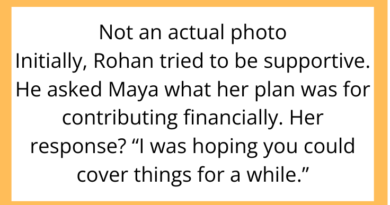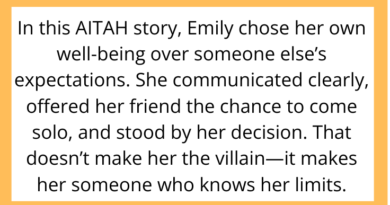AITAH for Refusing to Loan My Friend Money After Multiple Requests?
When friendships meet finances, things often get complicated quickly. Money can test even the strongest bonds, and when a friend repeatedly asks to borrow cash, it’s easy to feel torn between generosity and self-protection. Today’s AITAH-inspired story dives into this very dilemma: Is it selfish to say no to a friend in need, or is it a necessary boundary to maintain healthy relationships?
Let’s explore the situation.
The Background: A Friend Asking for Money Again and Again

The original poster, whom we’ll call Raj, explained on Reddit’s r/AITAH forum that he has a close friend, Sam, who’s been going through a rough patch financially. Over the past year, Sam has asked Raj for loans multiple times, ranging from small amounts to a few hundred dollars.
Raj has helped out in the past but recently decided to stop lending money after realizing Sam wasn’t making an effort to improve his situation. Each time Raj said no, Sam became distant or defensive, which made Raj feel guilty but also frustrated.
The Conflict: When Helping Becomes a Burden

Raj shared that while he wants to support his friend, he also has his own financial responsibilities—bills, savings goals, and family obligations. He felt like Sam was relying too heavily on him instead of finding alternative solutions.
Sam, on the other hand, believes Raj is being unsupportive and selfish, accusing him of not valuing their friendship. According to Sam, a true friend should be willing to help in times of need, regardless of how often it happens.
Raj turned to the AITAH community for perspective: Is he wrong for refusing to loan money repeatedly?
Perspectives from the AITAH Community

Supporting Raj: Boundaries Are Important
Many commenters agreed that Raj is justified in setting limits, especially after he had already helped several times. Lending money can strain friendships, and it’s important to protect one’s financial stability.
One user commented, “Friendships should not come with an unspoken debt. If Sam can’t manage his finances, it’s not Raj’s responsibility to bail him out indefinitely.”
Understanding Sam: A Friend in Genuine Need
Some commenters empathized with Sam’s situation, acknowledging that financial hardship can be overwhelming. They suggested that sometimes friends really do need help, and turning them away can feel harsh.
However, most agreed that repeatedly borrowing without a plan to improve the situation risks creating an unhealthy dynamic.
Why Saying No Is Sometimes the Kindest Choice

Protecting Yourself Is Not Selfish
It’s easy to feel guilty about refusing a friend’s request, but financial boundaries help prevent resentment, stress, and damaged relationships.
Encouraging Responsibility
By not enabling continuous borrowing, Raj may be motivating Sam to seek other solutions—budgeting, finding additional income, or seeking professional help.
Navigating Money and Friendship: Tips to Consider

-
Set Clear Boundaries Early: Decide if and when you are willing to lend money.
-
Communicate Honestly: Explain your reasons for saying no in a kind but firm way.
-
Offer Non-Financial Support: Help with job leads, budgeting advice, or emotional support.
-
Avoid Mixing Money and Friendship: Consider it a last resort, not a norm.
Final Thoughts

In the complex landscape of friendships and finances, it’s okay to prioritize your well-being. Raj’s story reminds us that boundaries aren’t about being unkind—they’re about sustaining healthy relationships and mutual respect.


